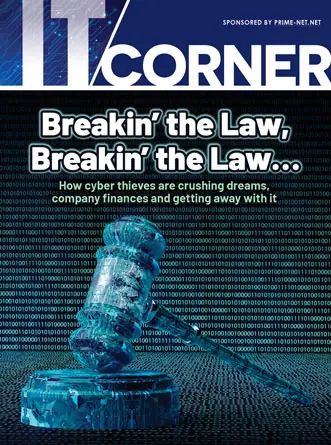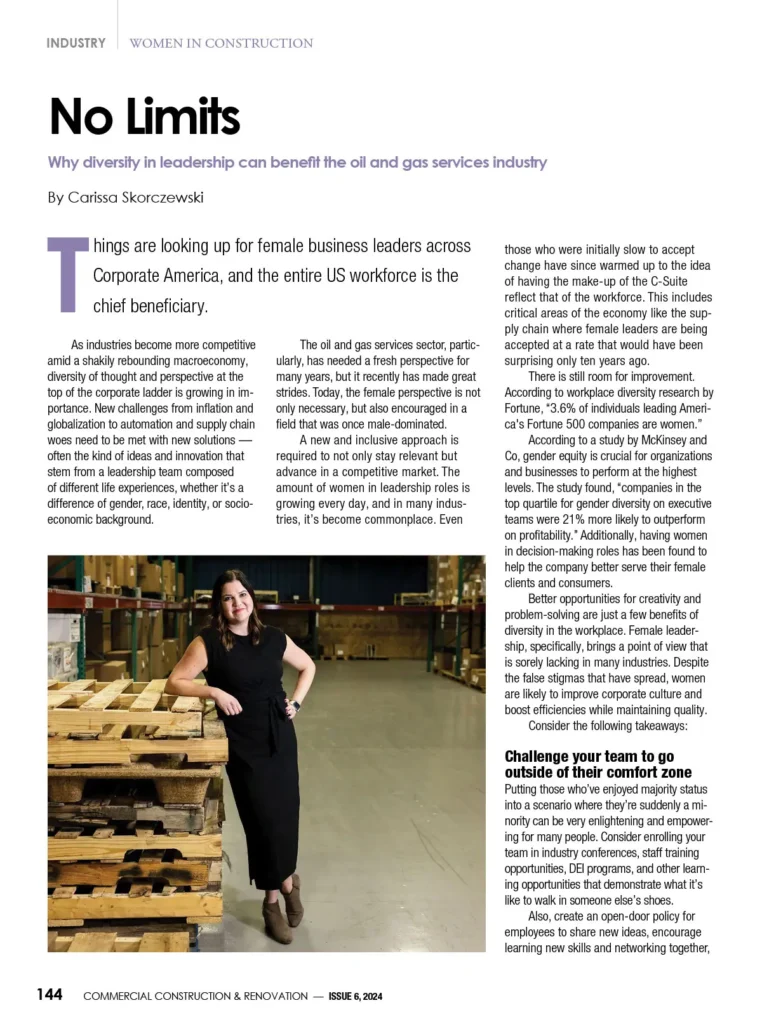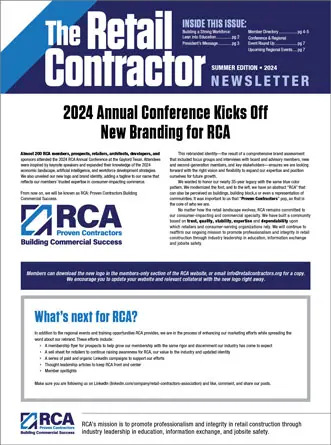Contingent payment clauses can be found in almost all subcontracts. These clauses require an owner to make payment to a contractor before the contractor has any obligation to pay the subcontractor. These clauses continue to expand in scope, often including the surety (where there is one), and may also provide that the subcontractor has no cause of action of any kind against the contractor or surety if the contractor is not paid.
Several states have banned these types of provisions on the grounds that they contradict public policy or that they impair a subcontractor’s ability to exercise its rights under state lien law.
Contractors include contingent payment provisions for understandable reasons. Contractors generally operate on thin margins, and it could prove financially disastrous for a contractor to “finance the job” and pay all of its subcontractors and suppliers in advance of payment from the owner. Yet this rationale ignores the effect of non-payment on each subsequent step in the chain of contracts, as it is no less disastrous for a subcontractor to have to pay all of its sub-subcontractors, suppliers, and personnel out-of-pocket.
As a brief background, any entity or laborer who improves real property under a contract or subcontract has a right to claim a lien against the improved property in the case of non-payment. The law generally prevents a lienor from waiving its right to claim a lien in advance of performing the work. A payment and performance bond (“bond”), issued by a surety on behalf of the contractor, guarantees payment to subcontractors and suppliers, and guarantees that the contractor will complete the project. It serves as substitute security for lienors, protects an owner’s property from claims of lien, and the right to claim against it may also not be waived in advance.
Do Some States Provide A Basis For Outlawing Pay-If-Paid Clauses?
States that have prohibited pay-if-paid clauses in their entirety have generally done so by a statute that specifically addresses this issue. For example, North Carolina’s N. C. Gen. Stat. § 22C-2 states that:
Performance by a subcontractor in accordance with the clauses of its contract shall entitle it to payment from the party with whom it contracts.
Payment by the owner to a contractor is not a condition precedent for payment to a subcontractor and payment by a contractor to a subcontractor is not a condition precedent for payment to any other subcontractor, and an agreement to the contrary is unenforceable.
Similarly, Wisconsin’s Wis. Stat. § 779.135(3) explicitly prohibits clauses in contracts for the improvement of land which make “payment to a prime . . . a condition precedent to a prime contractor’s payment to a subcontractor, supplier, or service provider.
On the other hand, Florida’s laws, for example, contain no such admonition and, until they do, pay-if-paid clauses will continue to haunt subcontracts.
Some state laws provide a basis for finding that clauses impairing lien or bond rights are unenforceable.
Florida law for one precludes a lienor from waiving either lien or bond rights in advance of performing any work. § 713.20(2), Fla. Stat. (2019) states as follows:
A right to claim a lien may not be waived in advance. A lien right may be waived only to the extent of labor, services, or materials furnished. Any waiver of a right to claim a lien that is made in advance is unenforceable.
Regarding bonds, Florida Statute § 713.24(1)(f), Fla. Stat. (2019) states that a “lienor may not waive in advance his or her right to bring an action under the bond against the surety.”
Numerous subcontracts contain language similar to the following:
Receipt of these funds by Contractor shall be an absolute condition precedent to Subcontractor’s right to receive payment […] Subcontractor: (i) agrees that the Price shall be a non-recourse obligation; and (ii) waives Subcontractor’s right to assert any claim, demand, right, or cause of action against Contractor for any portion of the Price.
Other subcontracts contain language, or similar language, to the below clause, which explicitly precludes bond claims:
… receipt of payment by the Contractor from the Owner for the Subcontractor’s Work is a strict condition precedent to Contractor’s obligations to make payment to the Subcontractor under this Agreement, as well as any bond issued on behalf of Contractor and, therefore, no funds will be owed to Subcontractor by Contractor, or Contractor’s surety, unless and until Contractor is paid by the Owner for Subcontractor’s Work. Receipt of payment from the Owner shall also be deemed an express condition precedent to any claim for payment by Subcontractor against any surety bond procured by Contractor and against the surety issuing same.
One of the most egregious examples of an unenforceable payment clause is the following:
Subcontractor […] hereby covenants and agrees not to file any lien or make any claim against the Project […], or file any lien, make any claim […] against any monies due or to become due to Contractor, in accordance with any statute, state or federal, for any cause whatsoever.
All three of these clauses are at least partially unenforceable. The clause, “the price shall be a non-recourse obligation” is particularly severe, as it requires the subcontractor to agree that it has no recourse of any kind regarding payment. Such language arguably creates an unenforceable illusory contract. More to the point, such a clause requires the subcontractor to give up its lien rights in advance and is therefore unenforceable.
The second example, which makes payment from an owner an express condition precedent to bond claims, is equally unenforceable because it requires a subcontractor to give up its claims against the surety, a clear violation of some laws. The third example may also be a violation of law in that it clearly requires a lienor to abandon all recourse, whether guaranteed by state or federal law and whether the prime contract provides for recourse.
Contractors have also attempted to circumvent the language of the statute granting the right to a lien by claiming that “no funds will be owed to Subcontractor by Contractor” unless the owner has made payment. Unless price is designated as a non-recourse obligation, which would render the contract as a whole unenforceable, such a statement ignores the distinction between the accrual of a debt (“owe”) and the obligation to make a payment (“due” or “payable”). Performance by the subcontractor creates a debt that is payable according to the terms of the subcontract and if the obligation to pay the debt does not exist but for a condition over which the performing party has no control, we again have an arguably illusory and unenforceable contract.
Can the Unenforceable Clauses Be Excised From The Contract?
Contracts often contain a “severability” or “savings” clause that allows a court to sever unenforceable provisions from a contract while preserving the validity of the remainder of the contract. However, not all contracts are severable. In 1953, for example, Florida Supreme Court held that the unenforceable portion of a contract is only severable if it does not go to the essence of a contract and if, with the unenforceable provision removed, “there still remains of the contract valid legal promises on one side which are wholly supported by valid legal promises on the other.”
Applying this principle to pay-if-paid clauses, it would appear to be a simple matter to remove the unenforceable provisions and thus permit lien and bond claims to go forward. However, some subcontracts are so focused on strengthening the pay-if-paid clause that they include language making the clause a material term of the contract.
It is not unusual to find clauses that require the subcontractor to acknowledge that acceptance of these contingent payment terms is a material inducement to executing the subcontract.” One example reads as follows:
It is specifically agreed by Subcontractor that a material matter of inducement and consideration for the award of this Subcontract by [Contractor], is the Subcontractor’s agreement that it will not look to [Contractor], or its surety, for payments hereunder unless and until [Contractor]has received payment for Subcontractor’s work from the Owner.
Many courts have held that “material” and “essence” are, in effect, synonymous, observing that “[w]here…lender’s notice letter varies from [the contract] in a way that goes to the essence of the parties’ bargain, the variation is material and the lender has failed to satisfy a condition precedent to the foreclosure action.” Accordingly, one can make a colorable argument that to strike an unenforceable term that is a material inducement in a pay-if-paid clause is to strike at the essence of the contract and render it void in its entirety.
Does the inability to waive bond claims rights operate to negate pay-if-paid altogether?
The inability to waive bond claims has the practical effect of negating pay-if-paid clauses on projects where there is a bond.
However, that does not mean that the pay-if-paid clause is inherently unenforceable. It is unenforceable as to the surety who, upon having made payment to a subcontractor, will seek recovery from the contractor, de facto negating the payment clause. The situation would unfold as follows: a subcontractor demands payment from a contractor, who will claim non-payment by the owner as a defense. The subcontractor then timely files a Notice of Non-Payment putting the surety on notice that it has not been paid. Although the surety will likely attempt to assert the defense of non-payment by the owner, it will eventually be required to pay the subcontractor. Because the cost of a surety’s payments or performance is the responsibility of its principal, the contractor, the surety will look to the principal to recover what it has paid out to the subcontractor.
What is the effect of incorporating the direct contract?
Almost all subcontracts incorporate the direct contract by reference. The effect of this incorporation is to make the terms of the owner-contractor contract apply to the subcontract as well. Such incorporation can have unintended consequences for the pay-if-paid terms of the subcontract.
Where a direct contract required a contractor to make payment to its subcontractors in advance of final payment from the owner, and the subcontract contained a pay-if-paid clause, many courts have held that an ambiguity existed, and that “such ambiguity must be resolved against the general contractor.” Moreover, the ambiguity prevented the pay-if-paid “provision from effectively shifting the risk of the owner’s nonpayment from [contractor] to [subcontractor]. [Contractor] thus remains liable for the final payment owed [subcontractor].” Florida for one has held that “[b]y incorporating the prime contract into the subcontract, the pay-when-paid clause becomes ambiguous,” thus converting a pay-if-paid clause to a pay-when-paid clause, the latter being widely interpreted as requiring payment to a subcontractor within a reasonable time.
Contractors attempt to circumvent this by inserting language into the subcontract that raises the stature of the pay-if-paid clause above anything else in the contract documents. One example is the following:
Notwithstanding anything to the contrary contained within any of the Contract Documents, including, but not limited to, Contractor’s agreement with the Owner, receipt of payment by the Contractor from the Owner for the Subcontractor’s Work is a strict condition precedent to [payment to subcontractor].
Such efforts may be of no value in shifting the risk of payment to the subcontractor. If this clause contradicts the terms of the direct contract, an ambiguity still exists, and such ambiguity will be resolved in favor of the subcontractor to create a pay-when-paid clause.
Conclusion
Subcontractors have historically had difficulty receiving payment, and contingent payment clauses have exacerbated such problems. However, it was once much worse. More than a century ago, the Kansas City Court of Appeals was confronted with a case where a subcontractor had entered into a contract that provided for payment outside the time limits for imposing a lien claim on an owner’s property. Therein the court noted that:
[t]he necessary consequences [of a contract that provided for final payment after the time to record a lien had run] would seem to be that, if a party places himself in a position which renders him unable to bring suit to enforce the lien within the time limited, he thereby virtually waives it, having deprived himself by his own voluntary act of the right to enforce it.
Fortunately, the law has substantially evolved since that time. Although contingent payment clauses are enforceable in many states, they only provide temporary protection to the general contractor, and none to the owner or to the contractor’s surety. Notwithstanding contrary language in a subcontract, an unpaid subcontractor retains the right to record a claim of lien and the right to claim against a payment bond
About the Author: Leonard Klingen is a certified building contractor, holds an architecture degree, and is a board certified construction law attorney and senior partner at The Barthet Construction Law Firm in Miami. He can be reached at lklingen@barthet.com.









 The 2024 virtual Men’s Round Table will be held Q4, 2024, date TBD.
The 2024 virtual Men’s Round Table will be held Q4, 2024, date TBD.












